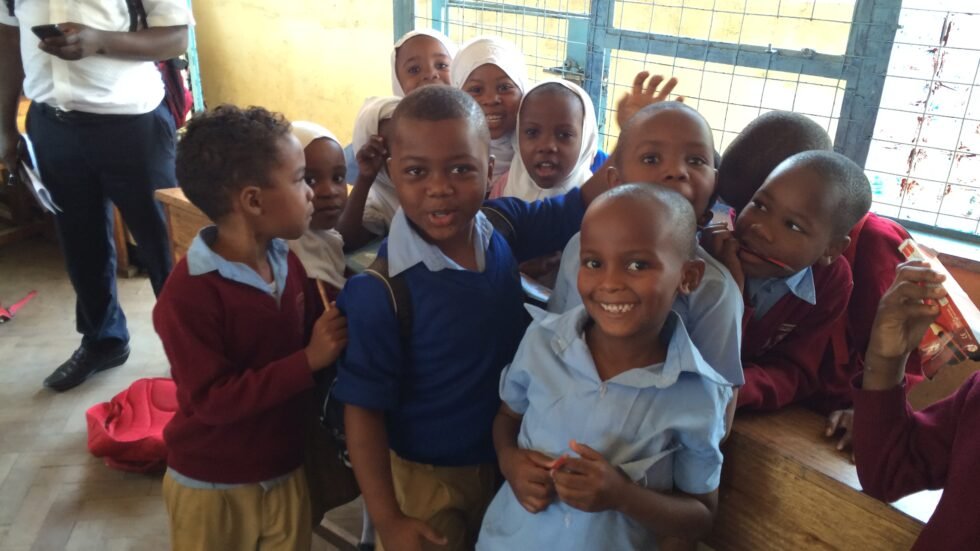Teachers, Partnership, and Data in Lesotho: How Do Early Childhood Stakeholders in Lesotho and Tanzania Define “Quality” in Pre-primary Programs
The ECD Measure team, in partnership with in-country consultants, recently completed a project to explore how early childhood stakeholders in Lesotho and Tanzania define quality pre-primary programs. Interviews were completed with pre-primary teachers, school administrators, teacher trainers, inspectors, and ministry staff in both countries. Participants were asked what a quality pre-primary program looks like, what challenges exist in implementing a quality program, and how data and measurement could support program improvement in their contexts. The findings highlight the need for qualified teachers, partnerships with families and communities, and access to data to inform decision-making.
A quality program means having caring, trained teachers.
Quality pre-primary programs were described as having the goal of supporting children’s learning and development, including socialization and life skills, and preparing them for the future. Beyond the basic necessities of a school building and materials, teachers were seen as critical to a quality pre-primary program. Expectations for teachers were high, with stakeholders describing a quality teacher as someone who has a good disposition, is knowledgeable about child development, has received training, is able to implement effective teaching activities and individualize instruction for each child, and is skilled in teaching through play.
Stakeholders spoke of teachers needing to be motivated and have “hearts that love children.” They view the role of pre-primary teachers as not only teaching children academic concepts, but also caring for and nurturing the whole child. Stakeholders envisioned colorful classrooms that engage children in exploring materials and teachers facilitating learning through discussion and modeling.
Ensuring teachers are able to meet these expectations requires offering lots of support through certificate or degree programs in early childhood, ongoing professional development opportunities, and resources such as a national curriculum and standards.
Strong partnership between pre-primary programs, families, and communities are essential to quality.
While teachers have a central role in quality, stakeholders also believe that teachers are not the only group that contributes to the quality of a pre-primary program. Rather, strong relationships between the school, families, and community are seen as key indicators of quality.
Stakeholders shared that there are many ways in which schools, families, and communities can partner in support of children. For instance, parents can ensure children come to school prepared and have supplies, volunteer at the school, communicate with teachers, and support their children’s learning at home through activities. Stakeholders feel teachers and parents should see each other as partners and work together to support the child’s development. Parents can help by valuing the program, being aware of their child’s development, providing stimulation at home, and contributing their own knowledge and experiences in the classroom.
Pre-primary programs are also viewed as part of the community — the success of the program relies on support from the community. Stakeholders believe communities should lift up pre-primary programs and value its role in the community. Pre-primary programs and community leaders should engage with each other and make decisions together.
Data are needed to support program improvement.
While both Lesotho and Tanzania collect some information from pre-primary programs, stakeholders reported that this is done infrequently, is limited in the type of information collected, and is rarely fed back to inform program quality. Sharing findings with programs and organizations can provide additional information about program quality and support improvement. One stakeholder described this process as taking a mirror to the program and asking, “what do I have here? where do I have to improve?”
Specific data stakeholders felt would be valuable include information on child development that could be used to help the teacher meet individual children’s needs and track progress over time. Classroom observation data that include teacher interactions and practices were viewed as necessary to develop trainings that address teachers’ current abilities to empower and educate the teacher.
Realizing these ideas about quality will require collaboration.
Through the qualitative exercise, stakeholders outlined critical components of quality for pre-primary programs that they believe are necessary to produce positive outcomes for young children and families. However, stakeholders also reported that the majority of programs in their country are lacking with respect to the characteristics identified for quality programs. The largest gaps reported are teacher preparation, infrastructure and materials, and supportive relationships between teachers, parents, communities, and government.
Lesotho and Tanzania are not alone in facing these challenges. Building strong early childhood systems requires understanding what stakeholders value and believe is necessary to ensure quality in pre-primary programs and working across groups to achieve these goals. Ensuring data is available to measure progress towards these shared goals will help stakeholders support program improvement.
This research has been submitted for publication.




